Texas restores dedicated funding for state and local parks
CORPUS CHRISTI – A longtime wrong has been righted, giving state parks the funding that was stolen from them by a sneaky Texas Legislature.
This week, the Texas Senate passed House Bill 158, which is sponsored by Republican Rep. Lyle Larson of San Antonio, effectively giving 94 percent of the sales tax revenue collected on sporting goods directly to the Texas Parks & Wildlife Department and municipalities for new parks and to maintain and staff existing state and local parks.
For years the Texas Legislature has siphoned, withheld and squandered resources earmarked for state parks by a law passed in 1993. Legislators since then repeatedly ignored the law along with the public’s wishes either by spending the money elsewhere or padding the general fund to create the illusion of a balanced budget.
HB 158 seeks to end all this by ensuring 100 percent of sporting goods sales tax revenue collected will be used for parks and historical sites. The Texas Historical Commission would receive 6 percent of the tax revenue.
Because both the full House and Senate passed the measure and the Senate Finance Committee unanimously favored the bill, no floor vote is required. The governor is expected to sign this into law, putting an end to the thievery.
The annual balance of this fund is expected to exceed $100 million. Since 1993, more than $2 billion has been collected from the sporting goods tax, but only 36 percent has been dedicated to parks, according to George Bristol, chairman of the State Parks Advisory Committee.
According to Larson, it will take as much as $604 million to fix state parks that have been neglected for too long. Plus, more than 47,800 acres of wilderness either donated or purchased for parks sits mostly idle and unused by Texas residents and visitors.
A Texas comptroller’s report showed out-of-state visitors to our parks spent $283 million in nearby communities in 2008. Texas’ more than 90 state parks generate $774 million in retail sales annually, contribute $351 million in economic benefits and create 5,800 jobs statewide, according to a recent Texas A&M University study. I’m talking about an economic impact involving everything from local jobs and tax revenue to cash for tourism-related small businesses near parks and increased real estate values.
Until now few politicians seemed to recognize these benefits, judging from the Texas Legislature’s annual attempt to divert funds away from parks.
An arbitrary funding cap from sporting goods sales for years prevented funding from keeping up with inflation and new acquisitions, resulting in Texas ranking a shameful 49th nationwide in per capita spending on state parks. And park visitation over the past five years has increased by 10 percent.
Despite this, in 2011 lawmakers cut the Texas Parks & Wildlife budget by $113 million. More than 100 park rangers and other staffers were laid off. Repairs to bathrooms, campsites and sewage treatment facilities were put on hold. Services at 23 parks were reduced and some were shut down on weekdays.
In addition to the economic value of parks, the conservation dividends are immeasurable. A well-maintained park system provides the only wilderness exposure many families enjoy in a state that is more than 96 percent privately owned. Parks are the places we fish, hunt, camp, hike, view wildlife or simply escape.
Fewer parks mean fewer stewards of wild places and a weaker conservation movement for Texas. State parks are necessary investments as perpetual recruitment tools for each generation’s conservationists.
Maybe Texas legislators were surprised to learn 92 percent of voters see parks as especially important in tough economic times, according to a poll funded by The Knobloch Family Foundation, The Jacob and Terese Hershey Foundation, Texas Parks & Wildlife Foundation, Texas Recreation and Parks Society and other supporters of Texas parks. And 88 percent view parks as essential to healthy, active lifestyles for Texans, while 84 percent acknowledge the need for protecting natural areas. And 76 percent of voters support the concept of earmarking sporting goods tax revenue for parks.
Now they know. Let’s hope they never forget.
David Sikes’ Outdoors columns appear Thursday and Sunday. Contact David at 361-886-3616 or david.sikes@caller.com. Twitter: @DavidOutdoors.

